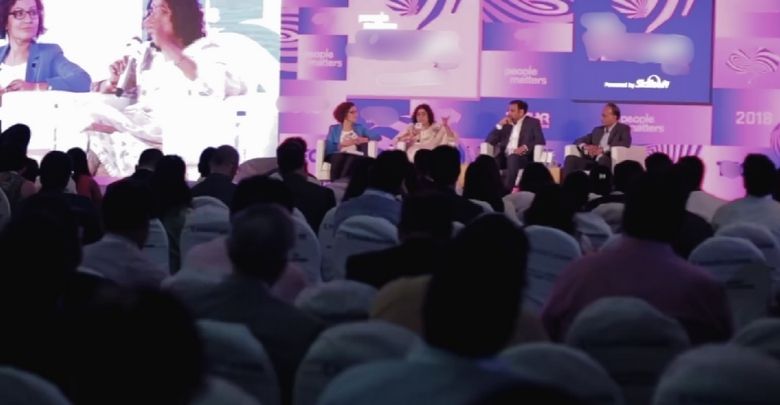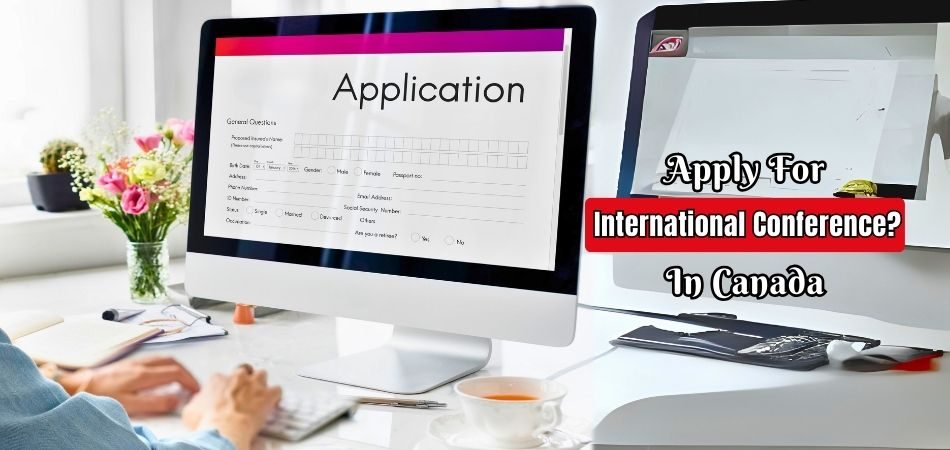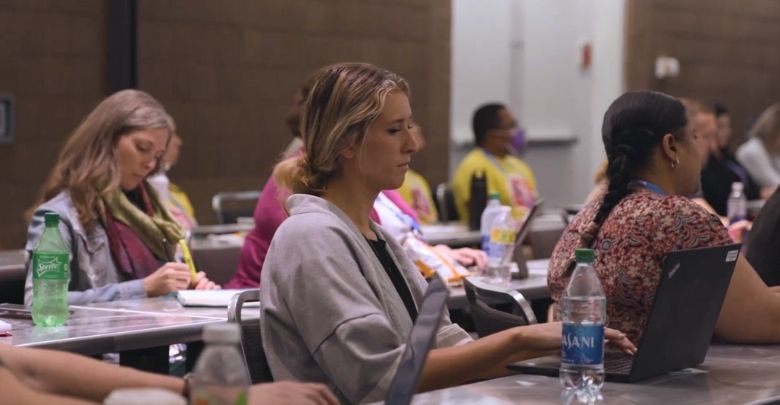International conferences in Canada are an exciting opportunity for anyone looking to grow professionally. It offers a chance to meet experts, share your work, and learn about the latest developments in your field. However, you may wonder, “How do I apply for an international conference in Canada?” The application process can seem complex, but it is manageable with the right approach.
To apply for an international conference in Canada, start by identifying the right conference that aligns with your interests and goals. Next, prepare your application by following the specific guidelines provided by the conference organizers. This typically includes writing an abstract or proposal, submitting your CV, and sometimes including a cover letter. Make sure to check the deadlines and required documents to ensure your application is complete.
If you understand how to apply for an international conference in Canada, you can maximize your chances of having a memorable experience. Take the time to research and prepare your materials thoroughly. This preparation will increase your chances of acceptance and help you make the most of the opportunities available at the conference.
Why Attend an International Conference in Canada?
Canada is known for hosting various international conferences. These events cover multiple disciplines, including technology, business, healthcare, and education. If you are looking to get invited to Canadian international conferences, attending these gatherings can significantly boost your career. You can gain valuable knowledge that you can apply in your work. Moreover, networking with industry leaders and experts at these events can open doors to new opportunities and collaborations in your field.
First, you get the chance to network with professionals from around the world. Building relationships with other attendees can lead to collaborations and job opportunities. Conferences are also a great place to share your research and receive feedback from experts in your field. Presenting your work can increase your visibility and establish your reputation. This exposure can lead to future speaking engagements or projects.
Additionally, international conferences often feature keynote speakers who are leaders in their fields. Listening to these speakers can provide you with new perspectives and insights. You will learn about the latest trends, innovations, and challenges in your area of expertise. This information can help you stay ahead in your field. Overall, attending an international conference in Canada can be a transformative experience for your career. You may find inspiration that motivates you to pursue new goals.
How Do I Apply for an International Conference in Canada?
Applying for an international conference in Canada can be a straightforward process if you break it down into clear steps. Each step is essential for a successful application. Knowing what to do and when will help you feel more at ease as you begin this journey. Here’s a detailed guide that outlines the steps involved, ensuring you are well-prepared for the application process.
Identify the Right Conference
The first step is to find a conference that suits your interests and goals. Start by researching conferences related to your field. You can use academic journals, professional organizations, and online platforms to discover upcoming events. Look for conferences that focus on topics relevant to your work. This ensures that your contributions will be valued.
Once you have a list of potential conferences, consider their themes and topics. Make sure they align with your expertise and research interests. Additionally, check the reputation of each conference. Look for reviews from past attendees and consider the conference’s history. This will help you choose a conference that meets your professional standards.
Understand the Application Requirements
Each conference has its guidelines and requirements for applicants. Once you have identified the right conference, including upcoming international conferences in Canada, visit its official website. There, you will find detailed information about the application process. Pay close attention to submission deadlines, registration fees, and any specific documents required. This will help ensure you are fully prepared for the application process and can make the most of the opportunities available.
To stay organized, create a checklist of everything you need to prepare. This can include your abstract, CV, and other materials. Knowing the format required for submissions is also crucial. Some conferences may ask for an abstract, while others might require a full paper or proposal. Make sure you know what is expected before you start preparing your application.
Prepare Your Submission
Writing a strong abstract or proposal is essential for a successful application. Begin by crafting a clear and concise statement of your research question or project. This should outline the main focus of your work and why it is important.
Next, describe your methodology and highlight your key findings. It is important to explain the significance of your research and how it contributes to your field. This is your chance to show why your work matters.
Before submitting your work, seek feedback from colleagues or mentors. Their insights can help you refine your submission and improve its quality. Take their suggestions seriously to make your application as strong as possible.
Submit Your Application
After you have finalized your submission, follow the guidelines for submission. Many conferences require you to submit your work through an online platform. Ensure that you have all necessary documents ready, including your abstract, CV, and any additional information requested by the organizers.
Once you submit your application, confirm that you receive a confirmation email. Keep this email for your records, as it may be required later. It is important to have proof of your submission in case of any issues.
Prepare for Acceptance
If your application is accepted, congratulations! Now, you will need to review any instructions provided by the conference organizers. This may include registration details, presentation requirements, and travel information.
Register for the conference as soon as possible to secure your spot. Early registration often comes with discounts, so take advantage of that opportunity. Lastly, start planning your travel and accommodations. Make your arrangements well in advance to avoid last-minute stress.
What Documents Are Required for Application?
When applying for an international conference in Canada, preparing the right documents is essential. This preparation can make your application process smoother and increase your chances of acceptance. Here are the key documents you may need:
- Abstract or Proposal: This document outlines your research or presentation topic. It should clearly state your main ideas and follow the word limit set by the conference. A well-crafted abstract can attract the attention of the organizers.
- Curriculum Vitae (CV): Your CV provides a snapshot of your educational background, work experience, and relevant achievements. Include details about your publications and projects that highlight your expertise. This document helps the organizers understand your qualifications.
- Cover Letter: Some conferences require a cover letter. In this letter, introduce yourself and express your interest in attending the conference. Highlight your relevant experiences and explain how your participation would benefit the event.
- Recommendation Letters: Some conferences may request letters of recommendation from mentors or colleagues. These letters should speak to your qualifications and potential contributions to the conference. A strong recommendation can greatly improve your application.
- Proof of Funding: Depending on the conference, you may need to provide proof of funding or financial support. This ensures you can cover your travel and accommodation expenses. Having this documentation ready shows that you are prepared and serious about attending.
What Happens After You Submit Your Application?
Once you submit your application, you will enter a waiting period. During this time, the conference organizers will review all submissions, which can take several weeks. While you wait, it is natural to feel anxious about the outcome. Understanding the process can help ease your mind and keep your expectations in check.
After the review is complete, you will receive a notification about the status of your application. If your submission is accepted, the organizers will provide important details about registration, presentation schedules, and any other relevant information. It is crucial to read this communication carefully and respond promptly if there are any requests or actions required from you.
If your application is not accepted, try not to feel discouraged. Many factors can influence the selection process, and a rejection does not reflect your abilities or the quality of your work. Remember that conferences receive numerous applications, and competition can be intense.
Consider reaching out to the organizers for feedback if possible. Their insights can help you identify areas for improvement and strengthen future submissions. Each experience is an opportunity to learn and grow, so take the time to reflect on the process and prepare for your next application.
Do You Need a Visa to Attend an International Conference in Canada?
For many international attendees, a visa may be necessary to enter Canada. Knowing the visa requirements early in the application process is essential. It is important to start this process as soon as you receive acceptance to the conference. This will give you enough time to gather documents and complete any necessary steps.
Check the Government of Canada’s website for the most current visa requirements. Each country has different rules regarding visas, so it is important to follow the guidelines specific to your nationality. Depending on your country of origin, you may need to apply for a Temporary Resident Visa (TRV) or an Electronic Travel Authorization (eTA). Knowing which one you need will help you avoid any issues later.
Once you determine the type of visa required, gather all necessary documents for your application. This usually includes your passport, an acceptance letter from the conference, proof of financial support, and any other documents requested by the Canadian authorities. To assist you in understanding these requirements better, an overview of global academic conferences in Canada can provide insights into the specific documentation often needed. Be thorough in gathering your paperwork, as missing documents can delay the process. Additionally, ensuring that you have everything in order will help streamline your visa application and reduce any potential stress.
Finally, allow sufficient time for the processing of your visa application, as it can take several weeks. Planning will ensure you have everything in order before your trip to Canada.
Tips for a Successful Conference Experience in Canada
Preparing for your conference experience is just as crucial as completing the application process. By following a few simple tips, you can ensure that you have a successful and enjoyable time at the conference. Here are some key strategies to help you make the most of your experience:
- Familiarize Yourself with the Schedule: Review the conference agenda in advance. Identify which sessions and workshops you want to attend. This planning will help you maximize your time and ensure you don’t miss important information.
- Be Ready to Network: Bring plenty of business cards with you. Be prepared to engage in conversations with other attendees. Networking can lead to valuable collaborations and opportunities that may extend beyond the conference.
- Take Notes During Sessions: Jot down key points and insights shared by speakers during the sessions. This practice will help reinforce your learning. After the conference, review your notes to reflect on what you learned and how you can apply it to your work.
- Explore the City: Take time to enjoy the local culture and sights. Exploring the city where the conference is held is a great way to unwind and meet new people.
- Participate Actively: Engage in discussions and ask questions during sessions. Active participation can deepen your knowledge and make your presence more memorable.
- Follow-Up After the Conference: After the event, reach out to the contacts you made. Send them a quick email or message to thank them for their time. This gesture can help solidify the connections you’ve made.
Frequently Asked Questions
Here are some common questions about attending international conferences in Canada. Understanding these answers can help you complete the application process and make the most of your experience.
What Is the Best Way to Find Relevant International Conferences in Canada?
You can find relevant international conferences by checking academic journals, professional associations, and conference databases. These sources often list upcoming events and provide important details. Networking with peers in your field can also lead to recommendations for notable conferences. Additionally, online platforms and social media are excellent resources for discovering events customized to your interests.
How Long Does the Conference Application Review Process Take?
The review process typically takes anywhere from one month to three months, depending on the size and scope of the conference. Organizers need time to evaluate all submissions thoroughly, which can vary based on the number of applications received. It’s essential to remain patient during this time and to check your email regularly for updates. Keeping track of your application status can help you stay informed.
Can I Attend a Conference Without Presenting?
Yes, most conferences allow for attendees who do not present. You can still gain valuable insights and network with others in your field. Attending can be an excellent way to learn and prepare for future presentations. Many people attend conferences primarily for networking and professional development, even if they are not presenting.
What Should I Include in My Conference Abstract?
Your conference abstract should clearly outline your research question, methodology, results, and significance. It should be concise and focused, adhering to any word limits set by the conference. Highlight how your work contributes to the field and why it matters. A well-written abstract is essential for capturing the interest of the organizers and attendees.
Are There Specific Formatting Guidelines for Conference Submissions in Canada?
Yes, each conference will have specific formatting guidelines for submissions. These may include requirements for font size, margins, and overall structure. Following these guidelines is crucial for ensuring your submission meets the organizers’ standards. Always refer to the conference’s official guidelines to ensure compliance and avoid any issues during the review process.
Final Words
In conclusion, attending an international conference in Canada can be a rewarding experience. It offers opportunities for networking, learning, and professional growth. By learning the application process and preparing effectively, you can maximize your conference experience and gain valuable insights from industry leaders.
So, how do I apply for an international conference in Canada? Start by identifying the right conference that aligns with your interests and goals. Next, understand the application requirements, prepare your submission, and submit it on time. Finally, be patient as you await the review of your application. As you prepare for your conference experience, remember to plan your schedule, engage with fellow attendees, and take notes during sessions.








